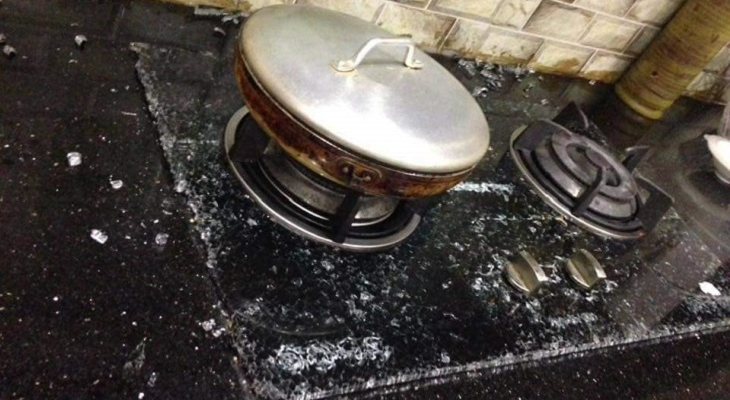Gaining an understanding of how these surfaces are built and the aspects that make them vulnerable can assist homeowners in protecting their stove tops and warding off dangerous situations.
Common Causes of Glass Stove Top Shattering
Although glass stove tops are generally dependable, they aren’t impervious to damage. Multiple factors can cause these surfaces to shatter unexpectedly, such as thermal shock, impacts from heavy objects, and even the occasional manufacturing defect. Let’s explore these causes thoroughly.
- Thermal Shock: The Primary Cause
Thermal shock is among the most prevalent reasons for glass stove top breakage. It happens when the surface undergoes a rapid shift in temperature that it can’t tolerate. For example, putting a cold pot directly onto a hot stove top or splashing cold water onto a heated surface can make the glass expand or contract too swiftly, resulting in shattering.
The sudden temperature change puts stress on the glass, creating cracks or fractures that can spread across its entirety. To prevent thermal shock, always let your cookware adjust to room temperature and avoid drastic temperature changes during cooking.
- Impact From Heavy Objects: A Recipe for Trouble
Another frequent cause of shattered glass stove tops is accidental impact. Dropping a heavy pot, pan, or other object onto the surface can generate cracks or even shatter the glass completely. Even a tiny crack can gradually weaken the surface over time, eventually leading to breakage.
To minimize the risk of damage, handle cookware with care and refrain from placing heavy items on the stove top. If a crack or chip appears, deal with it promptly to prevent further weakening.
- Manufacturing Defects: Rare but a Possibility
While manufacturing defects are uncommon, they can also be accountable for glass stove top breakage. Flaws in the glass or imperfections introduced during production can create weak spots that give way under normal use.
If you suspect a manufacturing defect, reach out to the manufacturer as soon as possible. Most warranties cover such defects, and you might be eligible for a replacement or an inspection to guarantee your safety.

